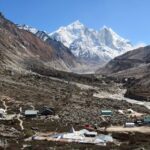With frequent change in political regime, Nepal has always been in the range of high political risk. Likewise, federalism which is an experiment yet to be tested in Nepal, accompanies several political risks, some of which are briefed below.
Power Sharing:
As the power sharing among the federal units is not properly defined it could create a puzzling situation.As exemplified by the federal situation of other countries, power sharing can be a major headache in federal structure. Consequently, the resulting power tussle could lead into the problems of corruption, favouritism and nepotism thereby impeding the prospect of doing business in Nepal.
Though decentralized system of governance in Nepal is not entirely novice but under federalism power sharing can be a challenge. Under this scenario, it would not be surprising to see power struggle among the three levels of government in the forthcoming days. The power squabble could ultimately impact the economic activities by imposing major hurdles in doing business in the federated Nepal. The constitution of Nepal currently has following areas in which power will be shared among the federal, state and local level governments.
List of Concurrent Powers of Federation and State
1. Civil and criminal procedure, evidence and oaths (legal recognition, public acts and records, and judicial proceedings)
2. Supply, distribution, price control, quality and monitoring of essential goods and services
3. Preventive detention for reasons connected with the security of the country, prison and detention management, and maintenance of peace and order
4. Transfer of accused persons, detainees and prisoners from one State to another State
5. Laws relating to family affairs (marriage, transfer of property, divorce, persons on the verge of extinction, orphan, adoption, succession and joint family)
6. Acquisition, requisitioning of property and creation of right in property
7. Contracts, cooperatives, partnership and agency related matters
8. Matters relating to bankruptcy and insolvency
9. Drugs and pesticides
10. Planning, family planning and population management
11. Social security and employment, trade unions, settlement of industrial disputes, labour rights and disputes related matters
12. Legal profession, auditing, engineering, medicines, Ayurvedic medicines, veterinary, Amchi and other professions
13. State Boundary River, waterways, environment protection, biological diversity
14. Matters related to means of communication
15. Industries and mines and physical infrastructures
16. Casino, lottery
17. Early preparedness for, rescue, relief and rehabilitation from, natural and man-made calamities
18. Tourism, water supply and sanitation
19. Motion pictures, cinema halls and sports
20. Insurance business operation and management
21. Poverty alleviation and industrialization
22. Scientific research, science and technology and human resources development
23. Utilization of forests, mountains, forest conservation areas and waters stretching in inter-State form
24. Land policies and laws relating thereto
25. Employment and unemployment aid
List of Concurrent Powers of Federation, State and Local Level
1. Cooperatives
2. Education, health and newspapers
3. Health
4. Agriculture
5. Services such as electricity, water supply, irrigation
6. Service fee, charge, penalty and royalty from natural resources, tourism fee
7. Forests, wildlife, birds, water uses, environment, ecology and biodiversity
8. Mines and minerals
9. Disaster management
10. Social security and poverty alleviation
11. Personal events, births, deaths, marriages and statistics
12. Archaeology, ancient monuments and museums
13. Landless squatters management
14. Royalty from natural resources
15. Motor vehicle permits
Ethnic federalism:
Ethnic federalism defines the federal units on the basis of ethnicity. Ethnicity federalism is always an obnoxious notion as it can be used as a political weapon to exacerbate ethnic conflict at the subnational level. Extreme form of ethnic federalism is ethnic cleansing as witnessed in the case of Amharas in Ethiopia and Rohingya in Myanmar.
In economic terms, ethnic federalism restricts the movement of labour, capital and knowledge. Setting up a new business in other regional government may be restricted. An seen in Ethiopia where a person wanting to run a business or have a government position in a region need to speak the local language, or else they are barred from holding that position.
Ethnicity in Nepal was a major issue while drafting the constitution in the recent years. Demarking the federal units based on the ethnicity and common identity was a major demand of various ethnic groups including the Madhesi people from Terai. After the federal and state level elections in the country, although the federal government will act as an observer, it will not be surprising to see states drafting policies in ethnic lines which can preclude the economic activities in the region.
Protectionism:
In federalism, provinces can protect their enterprises based on the rent seeking behavior of the local politicians. Such irrational behavior of the local politicians could result in endorsing substandard policy thereby hindering the free movement of foreign capital. For instance- Canada faced a similar problem where persistent barriers to internal trade, regulatory differences, inconsistent standards, and restrictions on the free movement of goods and services placed Canadian firms at disadvantage.
Nepal currently faces trade challenges as a result of its lower comparative advantage. Likewise subsidies to protect national businesses is common in Nepal. In this case, provinces with sizable number of industries may lobby the governing body to formulate policies protecting the enterprises. This could make doing business in the federated Nepal an exasperating experience.
Samridhi Pant is a Political Economist who has been studying the transition process of Nepal from a unitary to a federated structure from a private sector perspective. She has led several assignments ranging in scope from value chain analyses, enterprise development, socio-economic impact assessment, sectoral studies, and policy analysis. She is the coordinator at Nepal Economic Forum.





